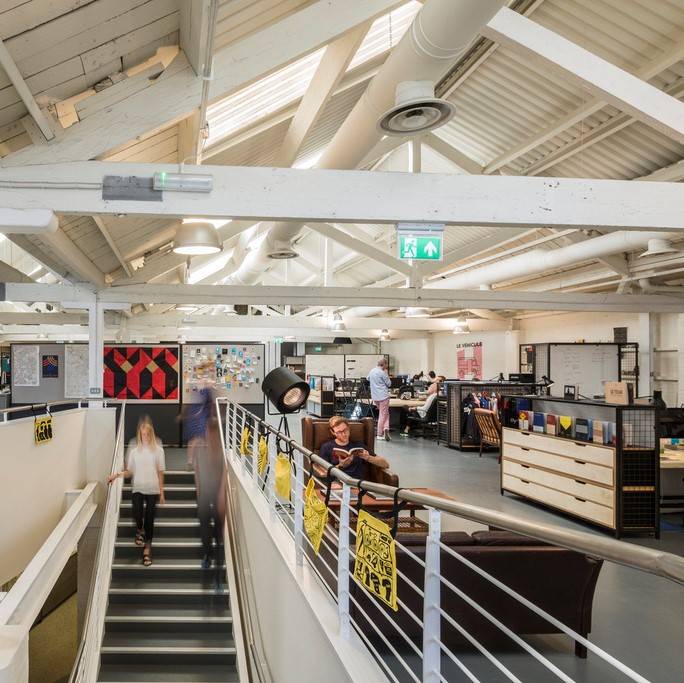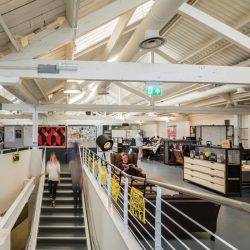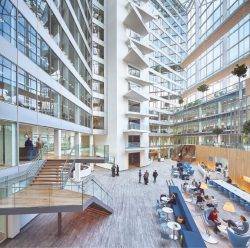March 5, 2018
Automation will lead to greater inequality rather than job losses
 The total level of wages associated with jobs that have the technical potential to be automated in the UK is £290 billion per year, which represents 33 percent of all wages and earnings from labour in the economy, according to a new report published by IPPR for the IPPR Commission on Economic Justice. The report further claims that low-wage jobs have more potential to be automated than high-wage jobs and so it’s not just automation’s impact on the number of jobs that need to be considered but the impact on inequality. If automation leads to lower average wages or working hours, or loss of jobs in aggregate, a significant amount of national income could be transferred from wages to profits. And while increased automation of activities will replace some workers and labour earnings, employment and wages will rise in other areas of the labour market due to higher output and productivity, offsetting some of the original £290 billion lost but increasing pay inequality.
The total level of wages associated with jobs that have the technical potential to be automated in the UK is £290 billion per year, which represents 33 percent of all wages and earnings from labour in the economy, according to a new report published by IPPR for the IPPR Commission on Economic Justice. The report further claims that low-wage jobs have more potential to be automated than high-wage jobs and so it’s not just automation’s impact on the number of jobs that need to be considered but the impact on inequality. If automation leads to lower average wages or working hours, or loss of jobs in aggregate, a significant amount of national income could be transferred from wages to profits. And while increased automation of activities will replace some workers and labour earnings, employment and wages will rise in other areas of the labour market due to higher output and productivity, offsetting some of the original £290 billion lost but increasing pay inequality.
















 The construction industry needs new talent and skills to help in the adoption of new technologies to meet the challenges of digital transformation. It must also become more diverse, including increasing the percentage of women in the industry. These are the recommendations of a new report from the World Economic Forum, developed in collaboration with The Boston Consulting Group (BCG), Shaping the Future of Construction: An Action Plan to solve the Industry’s Talent Gap. The report argues that the Infrastructure and Urban Development (IU) industry has failed to innovate as quickly as other sectors, resulting in stagnating productivity and negative effects on the economy, society and the environment. An ongoing industry-wide shortage of qualified workers is among the key reasons for this issue. It has undermined project management and execution, adversely affecting cost, timelines and quality. It also has impeded the adoption of new digital technologies, such as building information modelling (BIM), automated equipment and cloud-based collaboration tools, which could improve productivity. The report provides twelve key actions which needs to be implemented to close the structural talent gap of the construction industry.
The construction industry needs new talent and skills to help in the adoption of new technologies to meet the challenges of digital transformation. It must also become more diverse, including increasing the percentage of women in the industry. These are the recommendations of a new report from the World Economic Forum, developed in collaboration with The Boston Consulting Group (BCG), Shaping the Future of Construction: An Action Plan to solve the Industry’s Talent Gap. The report argues that the Infrastructure and Urban Development (IU) industry has failed to innovate as quickly as other sectors, resulting in stagnating productivity and negative effects on the economy, society and the environment. An ongoing industry-wide shortage of qualified workers is among the key reasons for this issue. It has undermined project management and execution, adversely affecting cost, timelines and quality. It also has impeded the adoption of new digital technologies, such as building information modelling (BIM), automated equipment and cloud-based collaboration tools, which could improve productivity. The report provides twelve key actions which needs to be implemented to close the structural talent gap of the construction industry.




 Concern amongst small and medium sized enterprises (SMEs) regarding the current economic climate fuelled by worries over a Brexit-related skills shortages, is at a three-year high, according to the latest Zurich SME Risk Index. It now sits at 56.38, indicating almost a 2 percent rise in perceived risk since Q1 2016 (55.43), and more than 3 percent higher than in October 2016 (54.55). SMEs attitudes towards economic growth, presently sits at a four-year low – with just two in five (40 percent) businesses confident that the UK economic situation will improve over the next 12 months. Similarly, the results regarding SMEs attitudes towards the international trade environment, reveals concern regarding overseas competition and currency rate fluctuations being at its highest in four years at 45.49. Equally, workforce challenges, namely the availability of skills and talent, is also an increasing concern for smaller businesses. Two in five (40 percent) SMEs now see workforce challenges as a major concern for their business; a rise of 8 per cent since October 2016, indicating that political issues are a major influence on the current attitudes of business owners in the UK.
Concern amongst small and medium sized enterprises (SMEs) regarding the current economic climate fuelled by worries over a Brexit-related skills shortages, is at a three-year high, according to the latest Zurich SME Risk Index. It now sits at 56.38, indicating almost a 2 percent rise in perceived risk since Q1 2016 (55.43), and more than 3 percent higher than in October 2016 (54.55). SMEs attitudes towards economic growth, presently sits at a four-year low – with just two in five (40 percent) businesses confident that the UK economic situation will improve over the next 12 months. Similarly, the results regarding SMEs attitudes towards the international trade environment, reveals concern regarding overseas competition and currency rate fluctuations being at its highest in four years at 45.49. Equally, workforce challenges, namely the availability of skills and talent, is also an increasing concern for smaller businesses. Two in five (40 percent) SMEs now see workforce challenges as a major concern for their business; a rise of 8 per cent since October 2016, indicating that political issues are a major influence on the current attitudes of business owners in the UK.
 The creative team behind the development of the world’s most sustainable building – The Edge in Amsterdam – has announced the launch of a real estate technology company. EDGE Technologies, launched by OVG Real Estate CEO Coen van Oostrom will focus on creating a new generation of buildings which feature the latest innovations in sustainability and wellbeing. Whereas parent company OVG is focussed exclusively on the development of its existing portfolio, EDGE Technologies will focus on both the development and the long-term operations of this new generation of buildings, aiming for a cohesive experience across cities. Each EDGE building will be built and operated on the same technology platform and offer consistent user-centred design, created to serve the needs of today’s fast-changing and demanding workforce. To help achieve this the new company is launching a product that will capture and aggregate data across its properties in order to optimize, measure and inform both the user experience and the building’s environmental performance.
The creative team behind the development of the world’s most sustainable building – The Edge in Amsterdam – has announced the launch of a real estate technology company. EDGE Technologies, launched by OVG Real Estate CEO Coen van Oostrom will focus on creating a new generation of buildings which feature the latest innovations in sustainability and wellbeing. Whereas parent company OVG is focussed exclusively on the development of its existing portfolio, EDGE Technologies will focus on both the development and the long-term operations of this new generation of buildings, aiming for a cohesive experience across cities. Each EDGE building will be built and operated on the same technology platform and offer consistent user-centred design, created to serve the needs of today’s fast-changing and demanding workforce. To help achieve this the new company is launching a product that will capture and aggregate data across its properties in order to optimize, measure and inform both the user experience and the building’s environmental performance. 










March 5, 2018
About time we simply accepted that coworking and flexible working are the new normal
by Sarah King • Comment, Coworking, Flexible working, Workplace design
(more…)